President, IGES
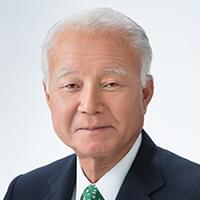
Welcome Remarks
Kazuhiko Takeuchi
President, IGES
Kazuhiko Takeuchi graduated from the Department of Geography, the University of Tokyo in 1974. He obtained M.Agr. and Ph.D. from the Graduate School of Agriculture, the University of Tokyo. He served as a Professor at the Asian Natural Environmental Science Center, and as Professor at the Graduate School of Agricultural and Life Science at the University of Tokyo from 1997 to 2012. He also served as a Vice-Rector and Senior Vice-Rector at the United Nations University from 2008 to 2016. He has been Director and Professor/Project Professor of the Integrated Research System for Sustainability Science (IR3S) at the University of Tokyo since 2012. He took up the position as President, Institute for Global Environmental Strategies (IGES) in July 2017. He has served, inter alia, as a Vice-President of the Science Council of Japan, Chair of the Central Environmental Council, Government of Japan, and Editor-in-Chief of the journal Sustainability Science (Springer Nature).
He specialises in landscape ecology, landscape planning, and sustainability science.
State Minister of the Environment, Japan
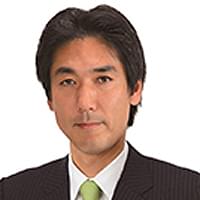
Guest Remarks
Minoru Kiuchi
State Minister of the Environment, Japan
Vice Governor, Kanagawa Prefectural Government
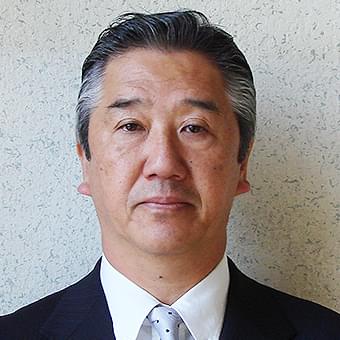
Guest Remarks
Yoshisato Asaba
Vice Governor, Kanagawa Prefectural Government
After graduating from Department of Civil Engineering, Tokyo Institute of Technology, Yoshisato Asaba entered Kanagawa Prefectural Government in 1980. He served in various positions, including Director of the Urban Planning Division, Executive Director of the Ecological Urban Development Department, Executive Director of the Urban Areas Department, and Director General of the Prefectural Land Development Bureau. He was assigned to the current position, Vice Governor, in May 2016.
Managing Director, IGES
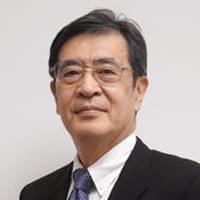
Moderator
Nobutoshi Miyoshi
Managing Director, IGES
Mr. Nobutoshi Miyoshi is a graduate of the Faculty of Law, University of Tokyo. He joined IGES in 2016 as Policy advisor and has served as the Managing Director since 2018. Before joining IGES, he served as Director of the Integrated Environmental Policy Bureau, Director of the Environmental Management Bureau and Minister's Secretariat of the Ministry of the Environment, Japan. He was a professor at Tohoku University from 2003-2005, and held a position as First Secretary of the Permanent Mission of Japan to the International Organizations in Geneva from 1992-1995.
.jpg)
.jpg)
.jpg)
.jpg)
.jpg)
.jpg)
Having reached a consensus to tackle global issues, the international community adopted the Paris Agreement and the 2030 Agenda for Sustainable Development and its 17 Sustainable Development Goals in 2015. Three years have passed since then, and various initiatives have been implemented around the globe. However, the question remains: will we ultimately meet all of the targets?
In 2019, according to UNESCAP’s report entitled Asia and the Pacific SDG Progress Report 2019, “On its current trajectory, Asia and the Pacific will not achieve any of the 17 Sustainable Development Goals (SDGs) by 2030. To live up to the ambition of the 2030 Agenda, accelerated progress is required on all fronts.” This report also states the necessity of reversing the negative trends observed in Goals 6 (“Clean Water and Sanitation”), 8 (“Decent Work and Economic Growth”), and 12 (“Responsible Consumption and Production”) in particular. Moreover, it emphasises the pressing need to take immediate action toward Goal 13 (“Climate Action”). On top of this, the report argues that, while each region in the Asia-Pacific is undertaking its own local initiatives, the entire Asia-Pacific must strengthen its means of implementation and partnerships in order to meet the SDGs.
At this session, following a keynote speech by ESCAP, ISAP2019 participants are invited to speak about initiatives and challenges in each of their respective regions. Furthermore, participants are invited to share their views on how to achieve Goal 17, to “strengthen the means of implementation and revitalise the global partnership for sustainable development.”
Executive Secretary of the United Nations Economic and Social Commission for Asia and the Pacific (ESCAP)
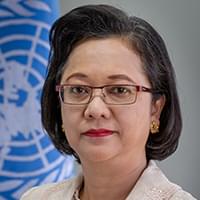
Keynote Presentation
Armida Salsiah Alisjahbana
Executive Secretary of the United Nations Economic and Social Commission for Asia and the Pacific (ESCAP)
Ms. Armida Salsiah Alisjahbana is the Executive Secretary of the United Nations Economic and Social Commission for Asia and the Pacific (ESCAP). Prior to the position, Ms. Alisjahbana was a Professor of Economics at Universitas Padjadjaran as well as serving as the Director for the Center for Sustainable Development Goals Studies and as the Vice-Chair of the Indonesian Academy of Sciences. In 2016, she was a member of the High-Level Independent Team of Advisers to support the Economic and Social Council dialogue on the longer-term positioning of the United Nations development system in the context of the 2030 Agenda for Sustainable Development. From 2009 to 2014, she was the Minister of National Development Planning and the Head of the National Development Planning Agency, Indonesia. She also served as the Co-Chair of the Global Partnership for Effective Development Cooperation, the Alternate Governor of the World Bank, and the Alternate Governor of the Asian Development Bank representing the Government of Indonesia.
President, IGES

Framing Presentation
Kazuhiko Takeuchi
President, IGES
Kazuhiko Takeuchi graduated from the Department of Geography, the University of Tokyo in 1974. He obtained M.Agr. and Ph.D. from the Graduate School of Agriculture, the University of Tokyo. He served as a Professor at the Asian Natural Environmental Science Center, and as Professor at the Graduate School of Agricultural and Life Science at the University of Tokyo from 1997 to 2012. He also served as a Vice-Rector and Senior Vice-Rector at the United Nations University from 2008 to 2016. He has been Director and Professor/Project Professor of the Integrated Research System for Sustainability Science (IR3S) at the University of Tokyo since 2012. He took up the position as President, Institute for Global Environmental Strategies (IGES) in July 2017. He has served, inter alia, as a Vice-President of the Science Council of Japan, Chair of the Central Environmental Council, Government of Japan, and Editor-in-Chief of the journal Sustainability Science (Springer Nature).
He specialises in landscape ecology, landscape planning, and sustainability science.
Director General of TERI – The Energy & Resources Institute, and a member of the Prime Minister’s Council on Climate Change
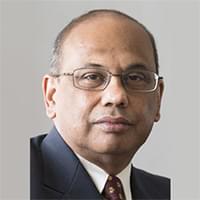
Ajay Mathur
Director General of TERI – The Energy & Resources Institute, and a member of the Prime Minister’s Council on Climate Change
Ajay Mathur is Director General of The Energy and Resources Institute (TERI), and a member of the Prime Minister’s Council on Climate Change. He was Director General of the Bureau of Energy Efficiency in the Government of India from 2006 until February 2016. He was responsible for bringing energy efficiency into Indian homes, offices, and factories, through initiatives such as the star labelling programme for appliances, the Energy Conservation Building Code, and the Perform, Achieve and Trade programme for energy-intensive industries.
Prior to TERI, Dr. Mathur headed the Climate Change Team of World Bank in Washington D.C., was the President of Suzlon Energy Limited, and also headed the interim Secretariat of the Green Climate Fund. He has been a key Indian climate change negotiator, and was also the Indian spokesperson at the 2015 United Nations Climate Change Conference in Paris. He is a global leader on technological approaches to address climate change: he co-chairs the Energy Transitions Commission, a global group of industrial, financial and think-tank leaders that suggests approaches for companies and countries to move towards climate-friendly energy futures.
Permanent Secretary of the Ministry of Natural Resources and Environment, Thailand
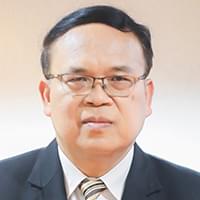
Wijarn Simachaya
Permanent Secretary of the Ministry of Natural Resources and Environment, Thailand
Dr. Wijarn Simachaya is the Permanent Secretary of the Ministry of Natural Resources and Environment, Thailand. His main responsibilities are natural resources and environmental plans, strategy development, as well as international cooperation on natural resources and environment issues. He is also a representative of the Ministry at various UN, sub-regional, and ASEAN forums. He has worked as a leader of green growth and government reform strategy development for Thailand. In addition, he serves as a chairman for the long-term strategy (20-year plan) on natural resources and environmental management, including water resources management, sustainable forest management, in conjunction with pollution control management and environmental governance at the Ministry. He has been a supervisor of 16 departments and public organizations of the Ministry, along with the 76 provincial offices for natural resources and environment throughout the country.
Dr. Simachaya joined the Office of Environmental Policy and Planning Board in 1984 and Pollution Control Department in 1992. He previously served as a director of the Environment Division of the Mekong River Commission Secretariat (International Organization) in Lao PDR during 1997-1998. He has also held several high ranking positions in the Ministry, including Inspector-General and Deputy Permanent Secretary of the Ministry of Natural Resources and Environment, Director-General of the Pollution Control Department for two terms, and the Secretary-General of the Office of Natural Resources and Environmental Policy and Planning.
Dr. Simachaya holds Bachelor’s degrees in Chemical Education and Laws from Chiang Mai University and Ramkhamhaeng University, respectively, a Master’s degree in Environmental Science from Kasetsart University and a Graduate Diploma in Sanitary Engineering from Chulalongkorn University. He obtained a Doctorate in Philosophy (Ph.D.) in Environmental Engineering from the University of Guelph, Canada in 1990.
Executive Director, IGES
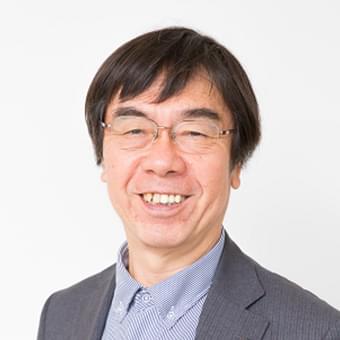
Moderator
Hideyuki Mori
Executive Director, IGES
Hideyuki Mori is a graduate of the School of Engineering, Kyoto University. He joined IGES in 2003. Prior to joining IGES, he served as Environment Specialist at the Asian Development Bank, Senior Environmental Coordinator of the United Nations High Commissioner of Refugees, Director of the Office of Research and Information at the Global Environment Issues Division of the Environment Agency of Japan (present Ministry of the Environment), and as Portfolio Manager of the Division of GEF at the United Nations Environment Programme. He was a professor at Keio University from 2008-2010. He has served as the Executive Director of IGES since 2010.
.jpg)
.jpg)
.jpg)
.jpg)
.jpg)
.jpg)
.jpg)
.jpg)
.jpg)